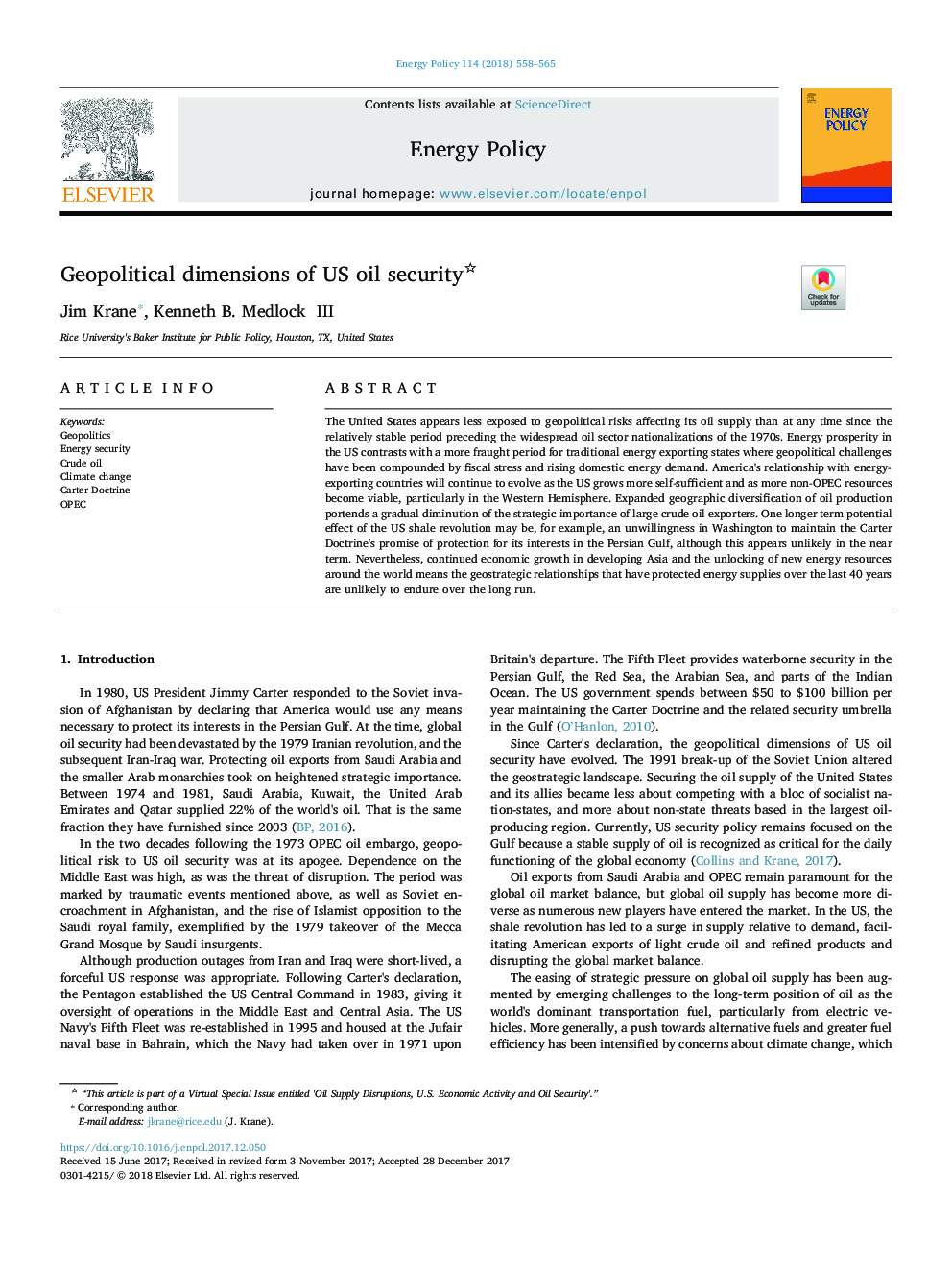| Article ID | Journal | Published Year | Pages | File Type |
|---|---|---|---|---|
| 7397705 | Energy Policy | 2018 | 8 Pages |
Abstract
The United States appears less exposed to geopolitical risks affecting its oil supply than at any time since the relatively stable period preceding the widespread oil sector nationalizations of the 1970s. Energy prosperity in the US contrasts with a more fraught period for traditional energy exporting states where geopolitical challenges have been compounded by fiscal stress and rising domestic energy demand. America's relationship with energy-exporting countries will continue to evolve as the US grows more self-sufficient and as more non-OPEC resources become viable, particularly in the Western Hemisphere. Expanded geographic diversification of oil production portends a gradual diminution of the strategic importance of large crude oil exporters. One longer term potential effect of the US shale revolution may be, for example, an unwillingness in Washington to maintain the Carter Doctrine's promise of protection for its interests in the Persian Gulf, although this appears unlikely in the near term. Nevertheless, continued economic growth in developing Asia and the unlocking of new energy resources around the world means the geostrategic relationships that have protected energy supplies over the last 40 years are unlikely to endure over the long run.
Related Topics
Physical Sciences and Engineering
Energy
Energy Engineering and Power Technology
Authors
Jim Krane, Kenneth B. III,
